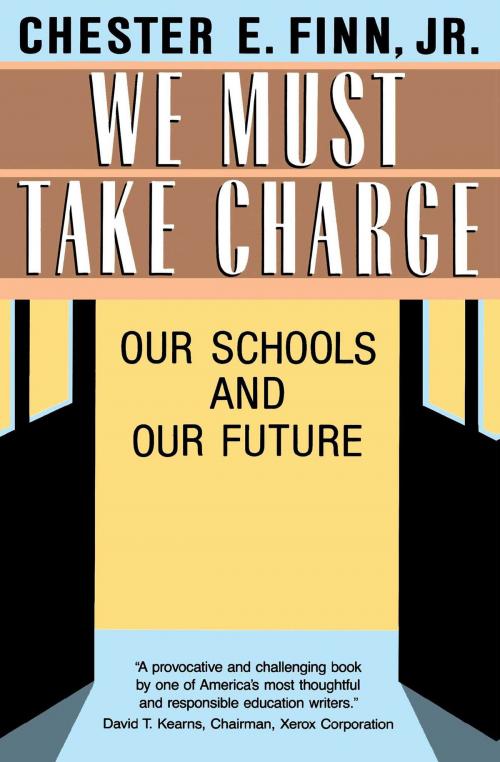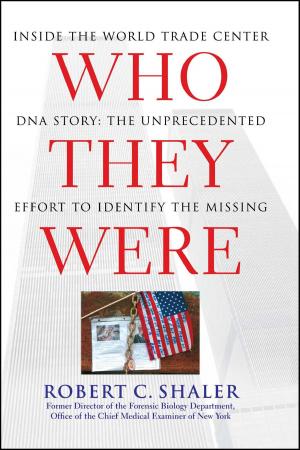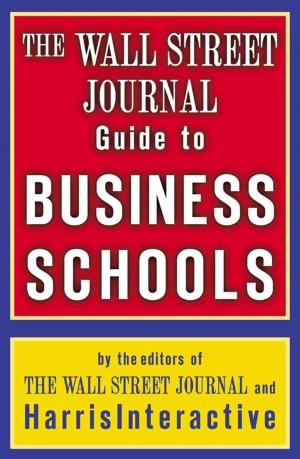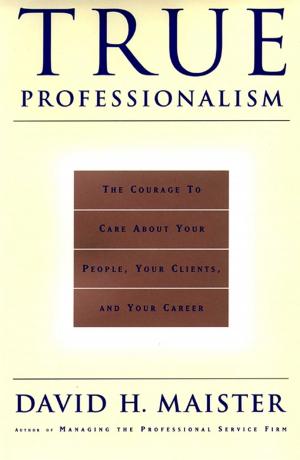We Must Take Charge!
Nonfiction, Reference & Language, Education & Teaching, Reference, Social & Cultural Studies, Social Science| Author: | Chester E. Finn, Jr. | ISBN: | 9781439106433 |
| Publisher: | Free Press | Publication: | June 30, 2008 |
| Imprint: | Free Press | Language: | English |
| Author: | Chester E. Finn, Jr. |
| ISBN: | 9781439106433 |
| Publisher: | Free Press |
| Publication: | June 30, 2008 |
| Imprint: | Free Press |
| Language: | English |
According to leading education analyst Chester Finn, a paradox lies at the heart of our educational trouble. While Americans commonly acknowledge that public schools in general are a disaster, polls consistently show that most parents, teachers, and administrators think their local schools and their own children are doing just fine. The implications of this self-congratulation are profound. For if people believe their own schools and children are succeeding, why should they feel compelled to change things? Yet, if we don't, we will continue to watch the destruction of a system that already lacks accountability and quality control, and is beset by a teaching profession compromised by bad ideas, fads, buck-passing, dubious theories, and stodgy practices.
Fin proposes radical changes which he insists must be championed by all Americans if this atrophy is to be reversed. First and most importantly, he calls on us to reorganize education in relation to the results we want from it. This means establishing a clearcut standard of intellectual achievement that we will oblige all of our schools to enforce and our children to meet. To define this standard, we will need to rebuild instruction around, a national curriculum of core subjects - history, science, geography, math, literature and writing. And we must demand a more detailed flow of useful information, including reliable testing, about how our children are performing in relation to this standard.
Finn calls on us to give our children as much time, as many options, and as broad an array of resources as possible. As he points out, learning can take place as easily in July as it does in march, as easily in a museum as it does in a classroom. And if parents have choices in deciding which schools and programs best fit the needs of students, they will have an added incentive in helping their children succeed. He urges us to revitalize the means of delivering education from the bottom up, by vesting as much authority as possible with educators in each individual school and holding them accountable for their performance.
For Finn, the implementation of these radical measures is essential to produce not only a knowledgeable twenty-first century work force that will keep our nation competitive, but an informed and reasoning citizenry capable of participating fully in a democracy. Challenging and candid, this book will point the way for all those insisting on the best that our schools can offer.
According to leading education analyst Chester Finn, a paradox lies at the heart of our educational trouble. While Americans commonly acknowledge that public schools in general are a disaster, polls consistently show that most parents, teachers, and administrators think their local schools and their own children are doing just fine. The implications of this self-congratulation are profound. For if people believe their own schools and children are succeeding, why should they feel compelled to change things? Yet, if we don't, we will continue to watch the destruction of a system that already lacks accountability and quality control, and is beset by a teaching profession compromised by bad ideas, fads, buck-passing, dubious theories, and stodgy practices.
Fin proposes radical changes which he insists must be championed by all Americans if this atrophy is to be reversed. First and most importantly, he calls on us to reorganize education in relation to the results we want from it. This means establishing a clearcut standard of intellectual achievement that we will oblige all of our schools to enforce and our children to meet. To define this standard, we will need to rebuild instruction around, a national curriculum of core subjects - history, science, geography, math, literature and writing. And we must demand a more detailed flow of useful information, including reliable testing, about how our children are performing in relation to this standard.
Finn calls on us to give our children as much time, as many options, and as broad an array of resources as possible. As he points out, learning can take place as easily in July as it does in march, as easily in a museum as it does in a classroom. And if parents have choices in deciding which schools and programs best fit the needs of students, they will have an added incentive in helping their children succeed. He urges us to revitalize the means of delivering education from the bottom up, by vesting as much authority as possible with educators in each individual school and holding them accountable for their performance.
For Finn, the implementation of these radical measures is essential to produce not only a knowledgeable twenty-first century work force that will keep our nation competitive, but an informed and reasoning citizenry capable of participating fully in a democracy. Challenging and candid, this book will point the way for all those insisting on the best that our schools can offer.















